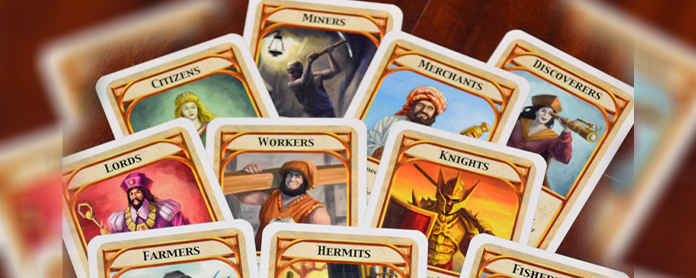Introduction
In today’s fast-paced world, finding avenues for entertainment and relaxation has become more crucial than ever. Games, game boards, entertainment, and game cards offer a diverse range of options to unwind, connect with friends and family, and challenge oneself. This article takes you on a journey through the captivating realm of games, game boards, entertainment, and game cards, exploring their types, benefits, and how they contribute to quality leisure time.
Games, Game Board, Entertainment, and Game Card Defined
Let’s start by understanding the key terms:
- Games: These are structured activities that involve one or more participants, often governed by rules, aiming for amusement, challenge, or competition.
- Game Boards: Game boards are platforms that provide a visual representation of a game’s progress, rules, and interactions. They enhance engagement and strategy planning.
- Entertainment: Entertainment encompasses various activities that capture our attention and bring joy. It can range from movies and music to games and sports.
- Game Cards: Game cards are integral components of many games, carrying information, instructions, or values that drive the gameplay.
Exploring Different Types of Games
Games come in a myriad of forms, catering to diverse interests and preferences. From video games that transport players to virtual worlds to traditional board games that foster face-to-face interactions, the options are endless. Some popular types include:
Video Games: A Digital Adventure
In the digital age, video games have revolutionized entertainment. From action-packed adventures to intricate puzzles, video games offer immersive experiences that challenge skills and creativity.
Board Games: A Classic Pastime
Traditional board games never go out of style. Games like Monopoly, Scrabble, and Settlers of Catan bring people together, encouraging friendly competition and strategic thinking.
Card Games: A Deck of Fun
Card games, such as Poker, Uno, and Solitaire, have a universal appeal. They require skill, luck, and quick thinking, making them ideal for social gatherings or solitary enjoyment.
Outdoor Games: Embracing Nature
Outdoor games like tag, hide-and-seek, and frisbee promote physical activity and social interaction. They’re a fantastic way to enjoy the outdoors while staying active.
Role-Playing Games (RPGs): Creating Alternate Realities
RPGs allow players to assume fictional roles and embark on adventures. Whether exploring dungeons or solving mysteries, RPGs offer a blend of storytelling and gameplay.
Benefits of Engaging in Games, Game Boards, Entertainment, and Game Cards
Engaging in games, game boards, entertainment, and game cards goes beyond mere amusement. These activities offer numerous cognitive, social, and emotional benefits:
- Enhanced Cognitive Skills: Many games require problem-solving, critical thinking, and strategic planning, which stimulate brain function and enhance cognitive skills.
- Social Bonding: Multiplayer games, whether digital or board-based, foster social interaction, teamwork, and healthy competition, strengthening relationships.
- Stress Relief: Playing games can serve as a stress reliever, diverting the mind from daily worries and promoting relaxation.
- Skill Development: Different games hone different skills. Video games can improve hand-eye coordination, while word-based games enhance vocabulary and language skills.
- Entertainment and Joy: Engaging in games and entertainment activities brings joy, laughter, and a sense of accomplishment.
Maximizing Your Game Card Collection
Game cards are integral to many games, adding an element of excitement and unpredictability. Building and maintaining a diverse collection of game cards can greatly enhance your gaming experiences:
- Research: Research different games that involve game cards and their mechanics. This will help you understand the value and strategy behind different cards.
- Trading: Engage in card trading communities or events to exchange cards with fellow enthusiasts. This can help you acquire rare or sought-after cards.
- Organize: Keep your game cards organized to easily access and manage them. Utilize storage solutions like card sleeves and binders.
- Stay Updated: Game card collections often expand with new releases. Stay updated with the latest releases to keep your collection fresh and exciting.
- Experiment with Strategies: Experiment with different combinations of cards to develop unique strategies and surprise your opponents.

FAQs
Q: How do games contribute to cognitive development? A: Games challenge the mind, promoting cognitive skills like problem-solving, memory retention, and critical thinking.
Q: What are some benefits of traditional board games over digital games? A: Traditional board games encourage face-to-face interaction, social bonding, and unplugged entertainment.
Q: Can card games be educational? A: Yes, card games can enhance skills like math, strategy, and logical thinking while providing enjoyable experiences.
Q: Are outdoor games suitable for all age groups? A: Absolutely! Outdoor games promote physical activity and can be enjoyed by individuals of all ages.
Q: How can I ensure a positive gaming experience? A: Choose games that align with your interests, take breaks to avoid overexertion, and maintain a sportsmanlike spirit.
Q: What’s the role of creativity in game card strategies? A: Creativity allows players to devise unique strategies by combining different cards in unexpected ways, adding excitement to gameplay.
Conclusion
Games, game boards, entertainment, and game cards offer a diverse array of avenues for relaxation, connection, and personal growth. Whether you’re navigating digital landscapes, strategizing on a game board, or enjoying the thrill of game cards, the world of entertainment is at your fingertips. Embrace the joy, challenge your skills, and share memorable moments with friends and family through these captivating experiences.


